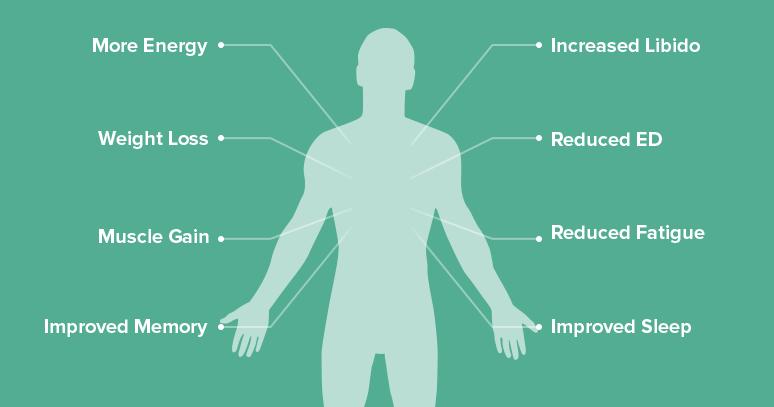In the ever-evolving landscape of medical treatments, testosterone therapy has emerged as a beacon of hope for those seeking to rejuvenate vitality and enhance quality of life. However, as with many medical interventions, it comes with its own set of questions and concerns. Among these, the potential link between testosterone therapy and heart disease looms large, sparking a debate that traverses the realms of science, health, and human aspiration. This article delves into the heart of this issue, exploring the evidence, expert opinions, and the delicate balance between risk and reward in the pursuit of well-being. As we navigate this complex terrain, we aim to shed light on whether testosterone therapy is a friend or foe to our cardiovascular health, inviting readers to consider the nuances of this intricate medical narrative.
Understanding the Link Between Testosterone Therapy and Heart Health
Recent studies have sparked a conversation about the potential cardiovascular implications of testosterone therapy. This treatment, often sought to address low testosterone levels, can have complex effects on heart health. While some research suggests a possible link to increased risk of heart disease, the evidence remains inconclusive. Understanding these dynamics is crucial for those considering therapy.
Key factors to consider include:
- Dosage and Duration: Higher doses and prolonged use may contribute to cardiovascular risks.
- Pre-existing Conditions: Individuals with a history of heart disease should consult their healthcare provider.
- Individual Variability: Genetic factors can influence how testosterone affects the body.
As with any medical treatment, personalized consultation with a healthcare professional is essential to weigh the benefits against potential risks. Tailoring therapy to individual health profiles may help mitigate adverse outcomes while reaping the benefits of improved vitality and well-being.

Evaluating the Evidence: What Research Says About Cardiovascular Risks
In the intricate landscape of testosterone therapy, researchers have diligently explored its potential implications for cardiovascular health. The evidence presents a nuanced picture, revealing both potential risks and benefits. Recent studies have highlighted several key factors that may influence cardiovascular outcomes in individuals undergoing testosterone therapy. Among these, the age of the patient, pre-existing health conditions, and the dosage and duration of therapy play significant roles.
- Age and Pre-existing Conditions: Older individuals and those with underlying heart conditions may face increased risks, prompting a need for personalized medical assessments.
- Dosage and Duration: High doses or prolonged therapy might exacerbate risks, whereas carefully monitored regimens could mitigate potential adverse effects.
- Diverse Outcomes: Some studies suggest improved heart health metrics, such as reduced fat mass and increased muscle strength, which could indirectly benefit cardiovascular health.
As the research continues to evolve, healthcare professionals emphasize the importance of a tailored approach, ensuring that the benefits of testosterone therapy are weighed against potential cardiovascular risks. Such a strategy involves close monitoring and a thorough understanding of individual patient profiles to optimize treatment outcomes.

Key Considerations for Patients: Navigating Testosterone Treatment Safely
When considering testosterone therapy, it’s crucial for patients to weigh the benefits against potential risks. To ensure a safe journey through treatment, patients should engage in open discussions with healthcare providers. Here are some key considerations to keep in mind:
- Comprehensive Evaluation: Ensure a thorough evaluation of your overall health, including cardiovascular assessments, before initiating therapy.
- Regular Monitoring: Frequent follow-ups with your healthcare provider can help monitor testosterone levels and assess any emerging health issues.
- Lifestyle Adjustments: Incorporate heart-healthy habits such as balanced nutrition, regular exercise, and smoking cessation to mitigate potential risks.
- Informed Decision-Making: Stay informed about the latest research and discuss any concerns or new findings with your doctor.
By prioritizing these considerations, patients can navigate testosterone therapy with greater confidence, ensuring their treatment plan aligns with their health goals and minimizes risks.

Guidelines for Clinicians: Balancing Benefits and Potential Heart Risks
When considering testosterone therapy for patients, clinicians should weigh the potential benefits against the possible cardiovascular risks. It is crucial to evaluate each patient’s unique health profile and history of heart disease. Current evidence is mixed, with some studies suggesting an increased risk of heart events, while others highlight the therapeutic advantages for men with clinically low testosterone levels. Therefore, a comprehensive assessment is essential to tailor treatment plans effectively.
- Conduct thorough cardiovascular risk assessments before initiating therapy.
- Monitor patients regularly for any signs of heart disease progression.
- Consider lifestyle modifications and alternative treatments for those at high risk.
- Stay updated with the latest research and guidelines to inform decision-making.
By implementing these strategies, clinicians can ensure a balanced approach, optimizing patient outcomes while minimizing potential risks.








